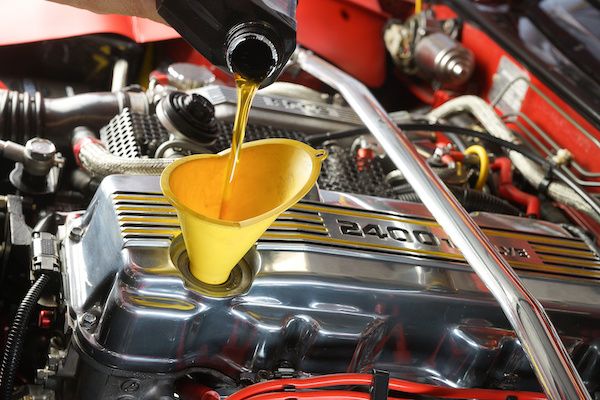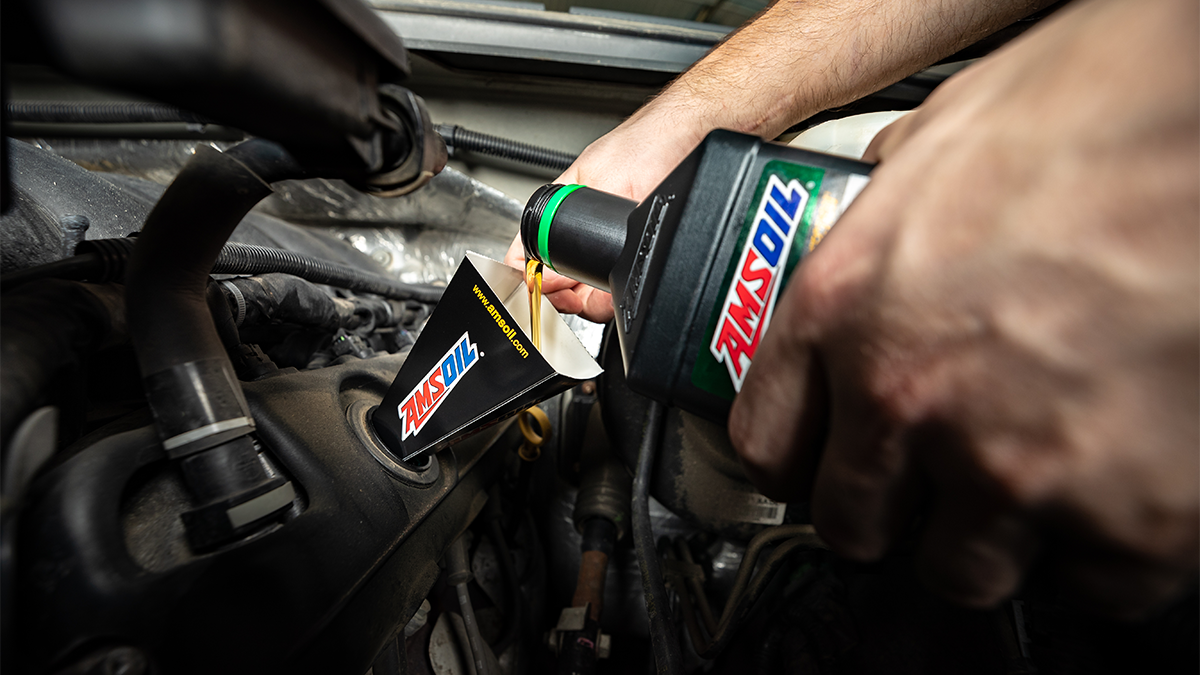


Maintaining your vehicle's engine is a crucial aspect of responsible vehicle ownership. Regular oil changes play a vital role in ensuring optimal performance, longevity, and protecting your investment. However, numerous myths and misconceptions surrounding oil changes continue to persist, leading to confusion and potentially harmful practices. This comprehensive article aims to separate fact from fiction, debunking common oil change myths and providing vehicle owners with accurate, research-backed information to make informed decisions about their vehicle's maintenance.

One of the most persistent and widespread myths surrounding oil changes is the belief that oil should be changed every 3,000 miles. This outdated recommendation stems from a time when engine technology and oil formulations were less advanced. However, modern vehicles, equipped with improved engine designs and high-quality synthetic oils, can often go much longer between oil changes without compromising performance or engine health.
The truth is that most automakers now recommend oil change intervals ranging from 7,500 to 10,000 miles for conventional oils and up to 15,000 miles for synthetic oils. These recommendations are based on extensive research and testing, taking into account factors such as engine design, driving conditions, and oil specifications.
| Oil Type | Recommended Change Interval |
|---|---|
| Conventional Oils | 7,500 - 10,000 miles |
| Synthetic Oils | Up to 15,000 miles |
Adhering to the manufacturer's recommended intervals and using the specified oil type and viscosity is crucial for ensuring proper lubrication and engine protection.
While general guidelines exist, it's important to note that oil change intervals can vary significantly depending on several factors:
Driving Conditions: Stop-and-go city driving, towing, or operating in extreme temperatures can accelerate oil degradation, necessitating more frequent changes.
Vehicle Age: Older vehicles may require more frequent oil changes due to increased wear and tear on engine components.
Oil Type: Synthetic oils typically last longer than conventional oils, allowing for extended change intervals.
Driving Habits: Aggressive driving styles or excessive idling can increase the rate of oil breakdown, requiring more frequent changes.
Failing to consider these factors and adhering to the outdated 3,000-mile myth can lead to unnecessary oil changes and increased maintenance costs. Conversely, neglecting to change your oil at the recommended intervals can result in premature engine wear, decreased fuel efficiency, reduced engine power, and even catastrophic engine failure if left unchecked.
Another common misconception is that all vehicles require the same oil change interval, regardless of make, model, or driving conditions. This one-size-fits-all approach fails to account for the unique characteristics and requirements of different vehicles.
In reality, oil change intervals can vary significantly depending on several factors, including driving conditions, vehicle age, oil type, and driving habits. Failing to consider these factors can lead to either premature engine wear or unnecessary oil changes and increased maintenance costs.
Each vehicle has its own unique set of requirements when it comes to oil changes. For example, a newer vehicle driven primarily on highways may require less frequent oil changes compared to an older vehicle used for stop-and-go city driving. Similarly, a vehicle equipped with a high-performance engine may have different oil change needs than a standard sedan.
To ensure optimal engine performance and longevity, it is essential to consult your vehicle's owner's manual and follow the manufacturer's specific recommendations for oil change intervals. These recommendations are based on extensive research and testing, taking into account factors such as engine design, driving conditions, and oil formulations.
By adhering to these recommendations, you can ensure that your engine receives the proper lubrication and protection it needs, while also avoiding unnecessary maintenance costs associated with overly frequent or infrequent oil changes.
Some drivers believe that synthetic oil is an unnecessary expense and that conventional oil is sufficient for their vehicle's needs. However, this myth overlooks the numerous benefits that synthetic oils offer, making them a worthwhile investment for many vehicles.
Synthetic oils offer several advantages over conventional oils, including:
| Benefit | Description |
|---|---|
| Improved Fuel Efficiency | Synthetic oils have superior lubricating properties, reducing friction and improving fuel economy. |
| Enhanced Engine Protection | Synthetic oils are more resistant to thermal breakdown and sludge formation, providing better protection against engine wear. |
| Extended Drain Intervals | Synthetic oils can often go twice as long between changes compared to conventional oils, reducing maintenance costs over time. |
| Better Performance in Extreme Temperatures | Synthetic oils maintain their viscosity and lubricating properties better in both hot and cold temperatures. |
While synthetic oils may have a higher upfront cost, their superior performance and extended drain intervals can offset this expense, making them a cost-effective choice for many vehicle owners. By reducing the frequency of oil changes and providing better engine protection, synthetic oils can help extend the life of your engine and potentially save you money in the long run.
Some drivers may be tempted to skip or delay an oil change, believing that it won't significantly impact their vehicle's performance or longevity. However, this myth can lead to costly consequences and should be avoided.
As oil ages and accumulates contaminants, it loses its lubricating properties, leading to increased friction and wear on engine components. This can result in:
Decreased fuel efficiency
Reduced engine power
Catastrophic engine failure (if left unchecked)
Furthermore, neglecting regular oil changes can void your vehicle's warranty, leaving you responsible for potentially expensive repairs. It's essential to follow the manufacturer's recommended oil change intervals to maintain optimal engine health and avoid costly breakdowns.
Regular oil changes are a preventative maintenance measure that can significantly extend the life of your engine. By keeping your engine well-lubricated and free of contaminants, you can avoid costly repairs or premature engine failure, which can easily dwarf the cost of routine oil changes.
Additionally, neglecting oil changes can lead to decreased fuel efficiency, further increasing your operating costs over time. Investing in regular oil changes is a cost-effective way to protect your vehicle and ensure its longevity and optimal performance.

Some drivers view oil changes as an unnecessary expense, believing that they can save money by skipping or delaying them. However, this myth fails to consider the long-term costs associated with neglecting regular oil changes.
Regular oil changes are a preventative maintenance measure that can significantly extend the life of your engine. By keeping your engine well-lubricated and free of contaminants, you can avoid costly repairs or premature engine failure, which can easily dwarf the cost of routine oil changes.
| Benefit | Description |
|---|---|
| Long-Term Cost Savings | Regular oil changes can help avoid costly repairs or premature engine failure. |
| Fuel Efficiency | Neglecting oil changes can lead to decreased fuel efficiency, increasing operating costs over time. |
| Engine Longevity | Proper lubrication and maintenance through regular oil changes can extend the life of your engine. |
Additionally, neglecting oil changes can lead to decreased fuel efficiency, further increasing your operating costs over time. Investing in regular oil changes is a cost-effective way to protect your vehicle and ensure its longevity and optimal performance.
While debunking these myths is crucial, the most important takeaway is to always follow your vehicle manufacturer's recommendations for oil changes. These recommendations are based on extensive research and testing, taking into account factors such as engine design, driving conditions, and oil formulations.
By adhering to the recommended oil change intervals and using the specified oil type and viscosity, you can ensure that your engine receives the proper lubrication and protection it needs to operate at peak performance and efficiency. Neglecting these recommendations can lead to premature engine wear, decreased fuel efficiency, and potentially costly repairs.
Conclusion:
Maintaining your vehicle's engine through regular oil changes is a critical aspect of responsible vehicle ownership. By separating fact from fiction and debunking common oil change myths, you can make informed decisions about your vehicle's maintenance needs. Remember, following your manufacturer's recommendations, considering your driving conditions and habits, and using high-quality oils can go a long way in extending the life of your engine and protecting your investment. Embrace preventative maintenance and prioritize regular oil changes to ensure your vehicle's optimal performance and longevity.
Most automakers now recommend oil change intervals ranging from 7,500 to 10,000 miles for conventional oils and up to 15,000 miles for synthetic oils. Consult your owner's manual for the specific recommendation for your vehicle.
No, oil change intervals can vary significantly depending on factors such as driving conditions, vehicle age, oil type, and driving habits. Follow the manufacturer's recommendations for your specific vehicle.
No, synthetic oil is not strictly necessary for older vehicles. However, it can provide better protection and longer drain intervals compared to conventional oil.
No, modern synthetic oils are designed to be compatible with engine seals and gaskets, and should not cause leaks in properly maintained older vehicles.
Yes, you can switch between conventional and synthetic oil without any issues. Many oils are already blends of synthetic and conventional oils.
Yes, missing an oil change can lead to increased wear and tear on engine components, decreased fuel efficiency, reduced engine power, and potentially catastrophic engine failure if left unchecked for too long.
No, regular oil changes are a cost-effective way to protect your vehicle's engine and ensure its longevity and optimal performance. They can help avoid costly repairs in the long run.
No, the color of the oil alone is not a reliable indicator of when it needs to be changed. Dark or black oil can be a sign that it is doing its job of suspending contaminants.
No, different vehicles require different types and viscosities of oil based on their specific engine design and manufacturer recommendations. Always use the oil specified in your owner's manual.
No, it is not recommended to extend the oil change interval before a long road trip. Stick to the manufacturer's recommended intervals to ensure proper lubrication and protection during the trip.

Sarah isn't your average gearhead. With a double major in Mechanical Engineering and Automotive Technology, she dived straight into the world of car repair. After 15 years of turning wrenches at dealerships and independent shops, Sarah joined MICDOT to share her expertise and passion for making cars run like new. Her in-depth knowledge and knack for explaining complex issues in simple terms make her a valuable asset to our team.



